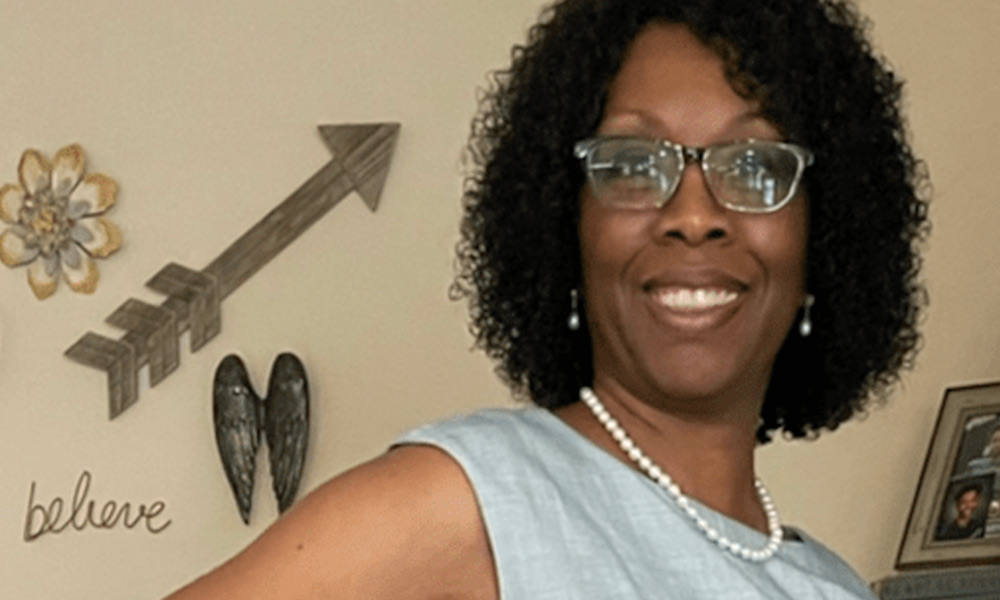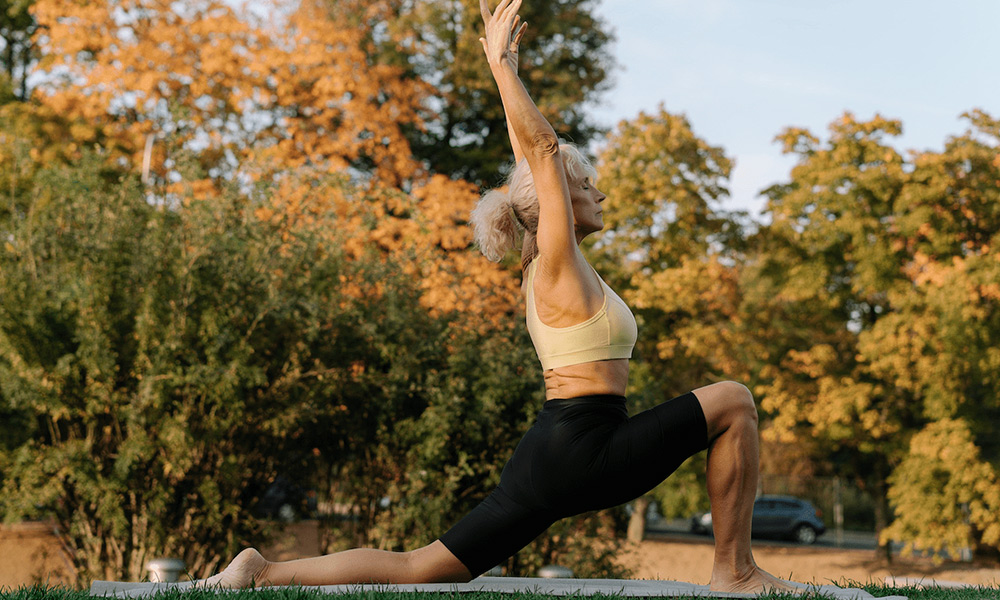As a wife, mother, grandmother, and licensed therapist, Natasha’s life was filled with the joyful gifts and responsibilities that come with caring for others. Like most survivors, Natasha Leeth’s story is intertwined with other events and occasions in her life.
Natasha’s battle with cancer began in March 2021, when her doctor requested a follow-up visit after her annual exam. She scheduled her appointment the day before her daughter’s 17th birthday. That day, her doctor informed her that she had DCIS and would need to be seen by a breast surgeon.
“I was by myself because I wasn’t expecting any bad news,” Natasha said. “I was in disbelief. I had been consistently receiving my yearly exam, and then this?”
The Highs of Life with the Lows of Cancer
After her diagnosis, Natasha met with her wonderful team of doctors to develop a plan. But after two unsuccessful lumpectomy surgeries, she decided to have a mastectomy with immediate reconstruction. Her doctors also determined that she needed a short round of chemotherapy.
“My daughter started the first day of her senior year of high school and I headed to chemo on the same day,” she shared. “I was unable to attend a lot of her senior activities and missed my son’s entire basketball season due to being exhausted and immunocompromised.”
Despite the side effects of treatment, Natasha still found a way to make her family feel important. Their support also made a tremendous difference in her fight. Thankfully, Natasha’s final surgery was successful, and she was able to return to work seven months later.
Tackling Life’s Responsibilities with “A Better, Stronger Me”
After needing to rest and recover for over seven months, Natasha knew she needed to do something to regain her strength. While talking with her surgeon about physical therapy options, she was given a brochure about the Survivor Fitness program. Natasha will always remember walking out of the office, reading it, and contacting the Survivor Fitness team while she was waiting to see her oncologist the same day!
“Cancer changed my life. Learning new ways to keep moving forward became my focus,” she described. “I wanted a program that would understand what I was going through and be sensitive to that.”
Alongside her personal trainer, Natasha figured out how to make exercise and fitness a priority in her everyday routine.
“Having a family, I constantly neglected my physical health,” she said. “The program provided me with the accountability and structure I needed to get back to my active lifestyle.”
Like most Survivor Fitness participants, Natasha was amazed by the results she experienced. The program allowed Natasha to engage in her normal joyful experiences and responsibilities.
“I am able to carry my grandbaby without any difficulty. I was also able to care for my son (who is 6’6”) when he broke his leg.” she shared. “I am so grateful to the program for helping me be a better, stronger me!”
A New Outlook on Life and Work
Like many cancer survivors, Natasha’s battle with cancer was life-changing in so many ways. While the journey was difficult, it also inspired Natasha to explore a new opportunity to help and serve others. After her treatment and experience with Survivor Fitness, Natasha decided to find ways that she could support clients who want to integrate health and wellness with traditional counseling.
“Now I am training to be a health and wellness coach in addition to providing psychotherapy! I was blessed throughout my journey in many ways and I hope to be a blessing to others.”
Survivor Fitness played a pivotal role in Natasha’s cancer recovery journey. Now, she can make a positive impact on the lives of countless people through her new vocation in health and wellness, in addition to the difference she’s already making as a wife, mother, and grandmother.
Become Part of the Survivor Fitness Movement
If you or someone you know is a cancer survivor looking to regain strength and health after cancer, we’re here for you! Connect with us today to learn more about participating in our program or check out more stories of other participants or learn how you can help others heal by donating to Survivor Fitness.

